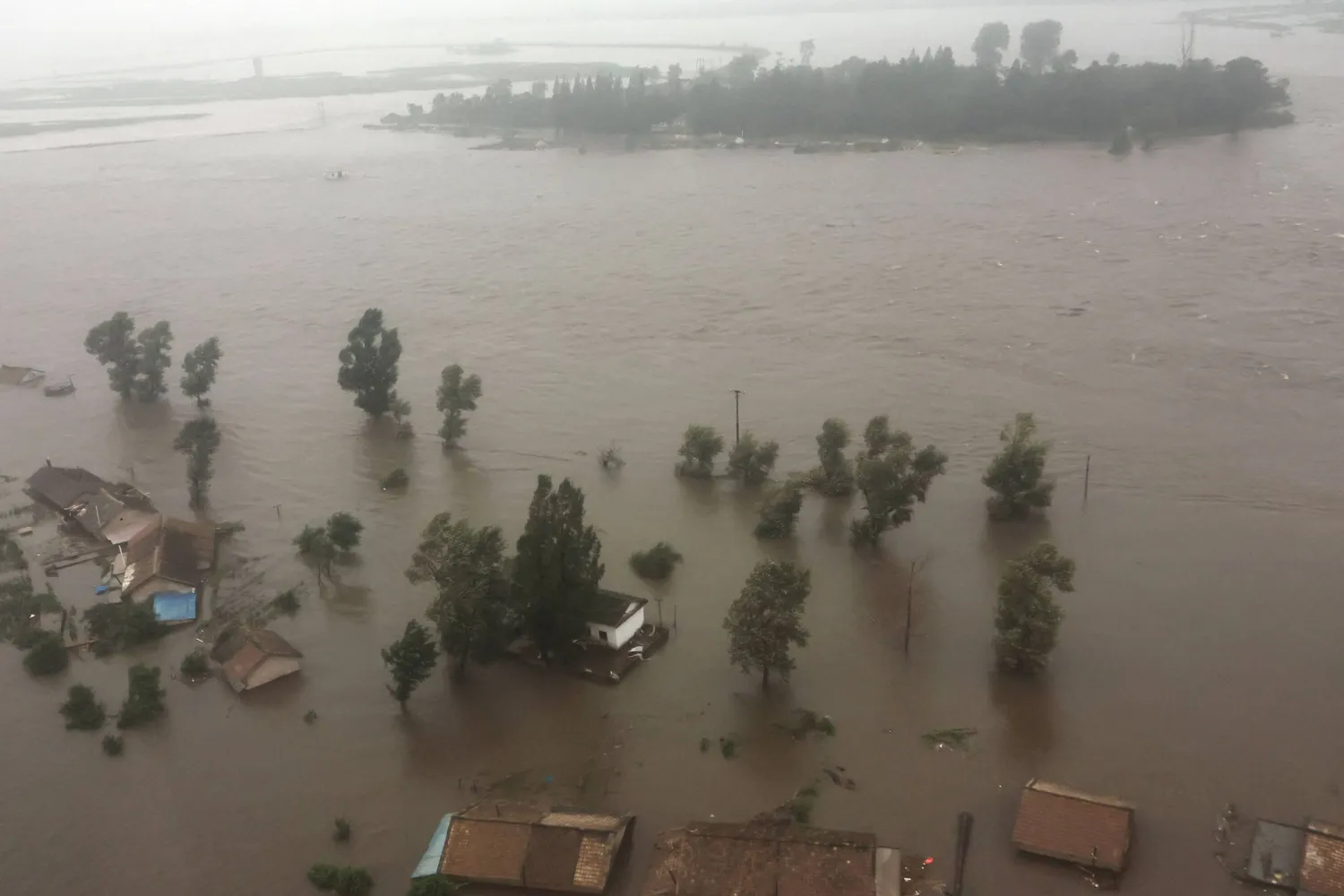North Korea deployed military helicopters to bring thousands of people stranded in a flood-hit zone to safety, state media reported Monday.
The official Korean Central News Agency (KCNA) reported leader Kim Jong Un last week "personally guided" a military rescue -- including 10 helicopters and navy lifeboats -- shaking the hands of the pilots "one by one".
Kim reprimanded officials for their failure to prepare and respond to the recent torrential rains, despite previous orders to enhance the country's measures against natural disasters, it said.
Last week, North Korea conducted a crisis response meeting to discuss strategies to mitigate the impact of natural disasters on agriculture, AFP said.
North Korea has been enduring record-breaking downpours, and one day in July Kaesong City experienced an unprecedented 463 mm (18.2 inches) of rain.
South Korea's meteorological administration said it was the highest recorded in the North in 29 years.
Natural disasters tend to have a greater impact on the isolated and impoverished North due to its weak infrastructure, while deforestation has left it vulnerable to flooding.
The North has been working to prevent floods, including releasing water from a dam near the inter-Korean border, raising flooding concerns in the South.
South Korea's environment ministry said in early July that North Korea had likely discharged water from the Hwanggang Dam near the inter-Korean border without prior notification, something they have not done in recent years.
Relations between the two Koreas are at one of their lowest points in years.
Pyongyang unilaterally cut off all official military and political communication links with Seoul in 2020 and blew up a disused inter-Korean liaison office on its side of the border.
It has not been responding to inter-Korean hotline calls since April 2023.
North Korea Mobilizes Military Helicopters for Flood Rescue

28 July 2024, North Korea, North Pyongan: This image provided by the North Korean state news agency KCNA on 29 July, 2024 shows flooded areas in North Pyongan province, according to KCNA. Photo: Uncredited/kcna/kns/dpa

North Korea Mobilizes Military Helicopters for Flood Rescue

28 July 2024, North Korea, North Pyongan: This image provided by the North Korean state news agency KCNA on 29 July, 2024 shows flooded areas in North Pyongan province, according to KCNA. Photo: Uncredited/kcna/kns/dpa
لم تشترك بعد
انشئ حساباً خاصاً بك لتحصل على أخبار مخصصة لك ولتتمتع بخاصية حفظ المقالات وتتلقى نشراتنا البريدية المتنوعة







